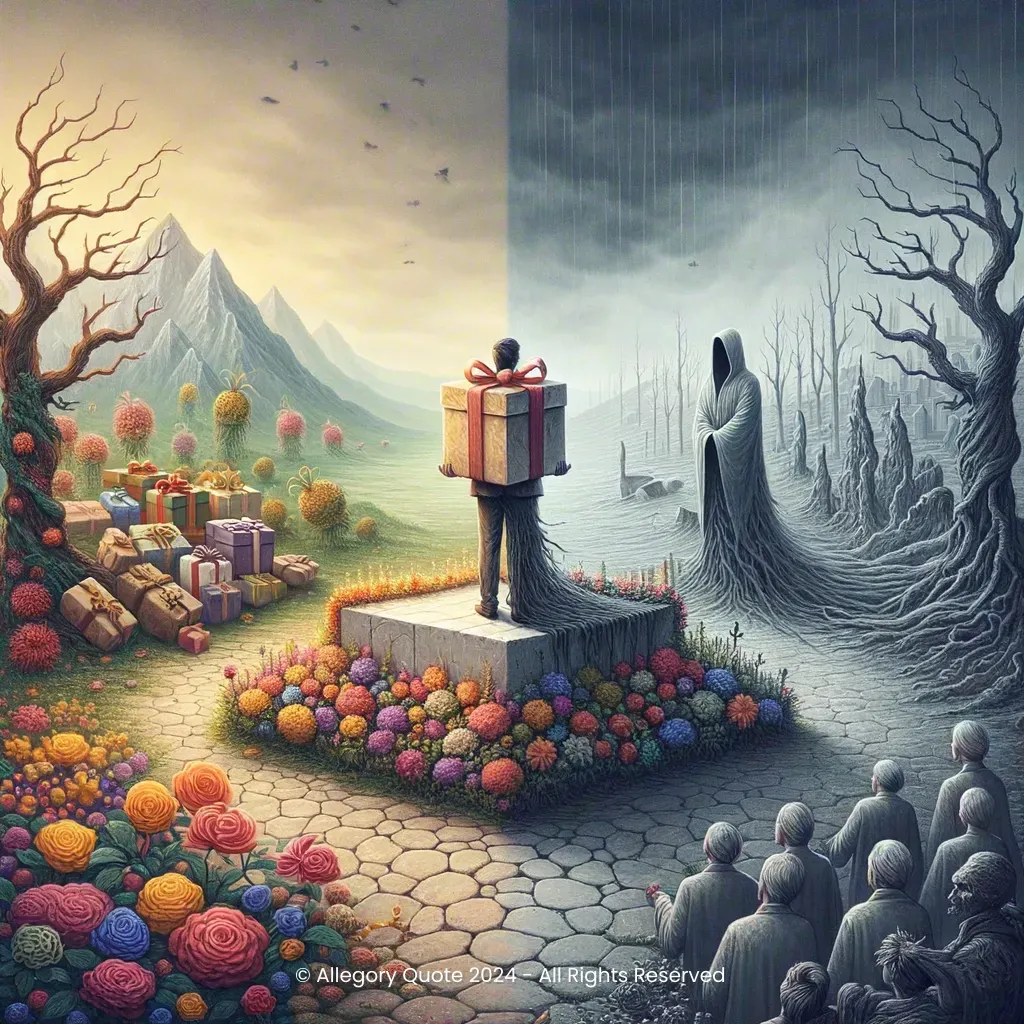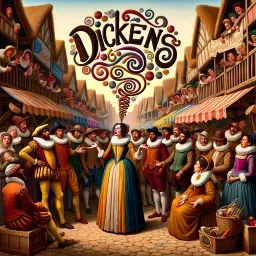Rich gifts wax poor when givers prove unkind

0
0
0
0
- Meaning
- The phrase "Rich gifts wax poor when givers prove unkind" means that even the most valuable gifts lose their worth if the person giving them is unkind or cruel. The sentiment here is that the intention and behavior behind a gift are just as important, if not more so, than the gift itself. It highlights the importance of the giver's character and the emotional context of the act of giving. In essence, gifts are not just material objects but also carry emotional and relational value.
- Allegory
- The image includes a grand gift to symbolize material wealth, placed in a dull environment to reflect the unkind nature of the giver. The withered surroundings denote the emotional barrenness accompanying such a gift. The harsh figure casting a shadow over the gift embodies the unkind giver’s impact. In contrast, the simple gift from the kind-hearted figure bathed in a lush, blooming environment captures the essence of genuine kindness, emphasizing that true value lies not in material extravagance but in the warmth and sincerity of the gesture. This combination highlights the dichotomy between material wealth and emotional richness.
- Applicability
- This phrase teaches us that kindness and generosity of spirit are more valuable than material wealth. In our daily lives, we might receive expensive gifts or grand gestures, but if they come from individuals who are insincere or unkind, those gifts can feel empty and meaningless. On a personal level, it encourages us to be mindful of our intentions and actions towards others, ensuring that our gestures of generosity are always accompanied by genuine kindness and empathy.
- Impact
- The phrase has influenced the way we understand the social and emotional dimensions of giving and receiving. It has been cited in various contexts to emphasize the importance of sincerity and personal integrity. Its enduring relevance showcases Shakespeare's deep understanding of human nature and relationships. Often used in literature and discussions about human behavior, it underscores the timeless idea that genuine acts of kindness surpass material generosity.
- Historical Context
- "Hamlet" was written around 1600, during the Elizabethan era. This period is characterized by a burgeoning interest in drama and literature, with Shakespeare being one of the most influential writers of the time. The play reflects the complexities of human emotions and relationships, which were significant themes in the Renaissance period's exploration of the human condition.
- Criticisms
- There are no significant controversies surrounding this phrase. However, some might argue that the intrinsic value of a gift is not necessarily diminished by the giver's lack of kindness, particularly if the gift itself holds significant objective value or utility. Others might contend that the emotional context does not always play a critical role in the worth of a gift.
- Variations
- There are no notable variations of this exact phrase, but similar sentiments exist in various cultures. Many cultures value the principle that the spirit in which a gift is given is as important as the gift itself, and this can be seen in proverbs and sayings worldwide.
-

The empty vessel makes the loudest sound.
-

There is a tide in the affairs of men, which, taken at the flood, leads on to fortune.
-

Some Cupid kills with arrows, some with traps.
-

How far that little candle throws his beams! So shines a good deed in a naughty world.
-

What light through yonder window breaks?
-

Men at some time are masters of their fates.
-

I am constant as the northern star.
-

I cannot tell what the dickens his name is.
-

I must be cruel only to be kind; thus bad begins, and worse remains behind.
-

One touch of nature makes the whole world kin.
No Comments